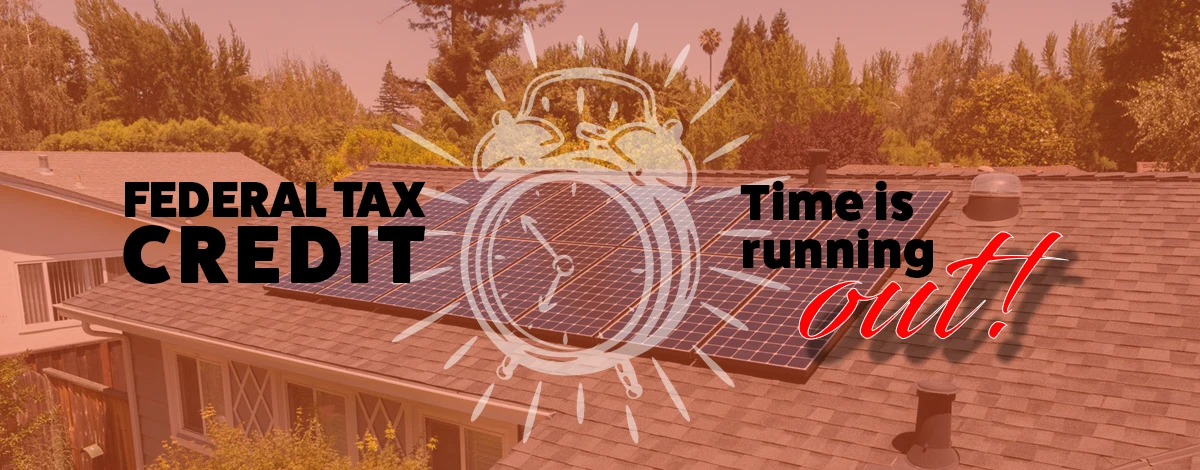We do our best to accommodate these procrastinators. It can be done, but it should not be guaranteed. Here’s why. Three third parties can break that promise.
The first, most common delay on installation, is the building department. Your city or county municipality has to approve engineering on a solar system then issue the permit. They also have to inspect the installation after it is completed. Some can be done in a few days, others can take weeks, in both instances, and we have no control over this.
Next is third party subcontractors. This is usually electricians. If a third-party electrician is required for say, a main panel upgrade, they work on their own schedule. Most are fairly accommodating and we hope they take into consideration that there is a time crunch. Many times, the electrician choice is the customer’s, and they can make a bad pick.
Another time variable is the power company. They may have to arrange for the power to be disconnected on the date of install and then come back and approve interconnection. They also work at their own pace and getting these scheduled to meet a deadline can be a challenge.
Those are just the three main third-party delays. There can be more. If the customer did some internet research and decided that one particular brand and model is the only one they’ll consider, and it is not available, delay. If the customer changes their mind about something after engineering, delay. If they opt to finance, delay. You get it.
We think the tax credit is an important and promising benefit to those who qualify for it. Less than 20% are eligible to capitalize on the full 30% credit, but if you are part of that 20%, it makes sense to take advantage of it. Consult with a tax advisor and find out if you need to be in a hurry.
Let’s talk to the other 80% and those who will not make the deadline. You should go solar anyway, tax credit schmax schmedit.
For the rest of this post we are going to reference a specific customer without mentioning her name. We will say this, she lives on a large, beautiful property and her energy consumption is way above average. Hers is one of the largest residential systems we have ever designed. So big that her roof would not hold all the panels and so it had to be placed on a ground mount. Also, she is with a power company that does not offer net metering (SECO) and so she needs a substantial amount of storage with her system. This all makes for a very costly system and install. She is perfect to use as a worst-case scenario.

Here are the particulars. Her average power bill is $486/month. The cost for the system we designed is $102,000.00 and we had to peel her off the ceiling when we disclosed that. This system price accounts for 129% of her electric consumption, the ground racking, and about 43 kWh of storage. (She will never need her power company again.)
She gave us the dreaded “I need to think about it” and probably will not go solar anytime soon. She should though, and right away, in fact she should have gone solar years ago. Let’s explain.
If we go to costtodonothing.com and put in her average bill, $486, and use the escalator of 5% for the annual percentage increase, a lot of valuable information pops up.
This year it will cost her $5832.00 for electricity.
If there are no increases, in thirty years she will pay the power company $174,960.00.
There are going to be increases. Most experts agree that 5% is a historical average and will be considered a blessing in the future as all indicators show that rates will increase much higher than 5%/year in the next several years.
With just the minimal 5% increase every year over thirty years, she will end up paying $406,844.93 for electricity. Her monthly electric payment to her power company in 2055 will be $2100.00 and her total cost for electricity that thirtieth year will be over $25K.
We think the most important benefit that solar offers is avoiding that compounding 5% increase. It freezes her expenses at today’s rates. That means, if she spends that $102K for solar and batteries today, it comes to about $75K less than she would pay her power company over thirty years at existing rates.
More importantly, as existing rates will increase dramatically over the next thirty years, we know that $406,844.93 she will pay if she doesn’t get solar now could be avoided for $102K and that is a lifetime savings of $304,844.93.
Sure, she stands to save $30K next year on her taxes, but it’s spit in the ocean compared to the $300K+ going solar will save her even without the tax credit. And remember, this is not just solar. It includes 43kWh of batteries too, along with a ground rack installation.
So, to summarize, she should go solar to save her and her family $300K+ over the next thirty years. But wait, there’s more! Call the tax credit, about $30K, a bonus. Energy independence, another bonus. Power, comfort, and safety when the grid fails, more bonuses. Saving the world by going green, maybe. The envy of your neighbors and the grateful faces of the less prepared you help during an outage, more bonuses. We could go on, but we think the $300K savings should be enough.
It is difficult for many to grasp this. (Maybe we are bad at explaining it.) It requires some forward thinking and a tolerance for delayed gratification. Saving $30K in taxes next year, that’s huge. Saving $300K+ over the next thirty years is huge-er-er, yet somehow less sexy while being more beneficial.
If you are in the 20% who have consulted with their tax advisor and need this tax credit, call us ASAP and we will do our best. There are about 105 days left, tick-tock-tick-tock, and all that. For the rest of you that see the $300K as the real reason to hurry, call us.
The moral of the story? Call us!


